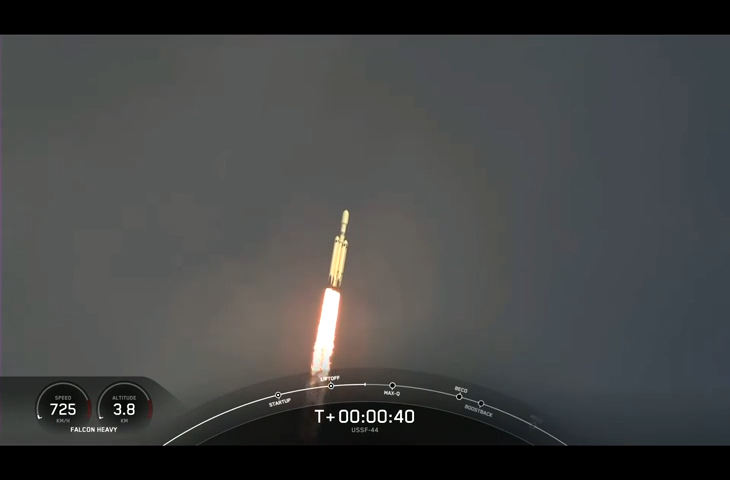What is a sonic boom? Here's what causes massively loud sounds during some rocket launches
BOOM! What was the earth-shaking, jolt-you-awake, set-off-the-car-alarm sound?
Oh right, a rocket launch.
But why are some rocket launches accompanied by sonic booms and others aren’t?
Either way, Space Coast residents need to brace themselves for that boom later this week.
What is a sonic boom?

OK, this is NASA’s explanation, which means it’s accurate, but stick with me.
When an aircraft travels faster than the speed of sound, the shock waves form a cone of pressurized air molecules. Those molecules move outward in all directions extending down toward the ground.
When the cone of pressurized air spreads across the landscape, a sharp release of pressure built up by the shockwave is heard. That sound is the sonic boom.
Rockets aren’t the only vehicle that can cause this thunderous sound. Long-time Brevard residents will remember often hearing the sound following the landing of space shuttles. The sound is also made by other aircrafts or vehicles that cross the speed of sound threshold.
Sonic booms can seldomly be caused by objects such as bullets or whips or by natural occurrences (earthquakes or volcanic eruptions), but they are mostly associated with vehicles.
Why doesn't every launch produce a boom?
Actually, the sonic booms you occasionally hear on the Space Coast are not caused by the launches themselves. Instead, The booms are caused when a first-stage booster from Falcon rocket returning for a landing at Cape Canaveral Space Force Station exceeds the speed of sound as it hurtles back to Earth.
During certain launches, two boosters can return to the Cape seconds apart creating twin booms.
During most SpaceX missions, the boosters are recovered on drone ships far out at sea. hence no local sonic boom.
How far does the sound of a sonic boom travel?
That all depends mainly on the altitude of the supersonic vehicle.
The width of the boom is about one mile for each 1,000 feet of altitude. That means an aircraft flying at 50,000 feet would produce a sonic boom cone about 50 miles wide.
Those closest to the vehicle will hear the loudest sonic boom, while the sound gets softer father away.
Sometimes sonic booms originating on the Space Coast can be heard all the way in Orlando.
What factors affect sonic booms?
There are plenty of factors that play a part in sonic booms.
As previously stated, the size of a vehicle has the most impact. Also playing a part in the volume and length of the boom – the shape of the vehicle, the flight path, atmospheric conditions as well as other factors.
Do sonic booms cause damage?
Sonic booms are measured in pounds per square foot of overpressure. According to NASA, one pound of overpressure should not cause any damage. Damage may occur to buildings and glass between two to five pounds of overpressure.
Here on the Space Coast, sonic booms usually measure between 1.5 and two pounds of overpressure. While damage doesn’t usually occur in Brevard County, depending on the size of the boom, you may seem some windows rattle or hear a few car alarms go off.
Will the Space Coast experience sonic booms this week?
If you hear a boom Saturday night, it means four astronauts are on their way to the International Space Station.
A manned NASA launch of a SpaceX Falcon 9 rocket and Dragon Endeavour, was slated for late Saturday night. Four astronauts will be aboard the rocket headed to the ISS for a science expedition.
To find out if future launches will include sonic booms, check Space Reporter Rick Neale's launch schedule.
Ever wonder if that juicy rumor you heard is true? Can't seem to find the answer to a question you have or ponder what's really going on in a certain area? Send your question to Trending Reporter Michelle Spitzer and let her do the work for you. Spitzer will answer a new question every week. Email your question to AskMichelle@Floridatoday.com.
This article originally appeared on Florida Today: Rocket launches often produce sonic booms heard, and felt, in Florida

